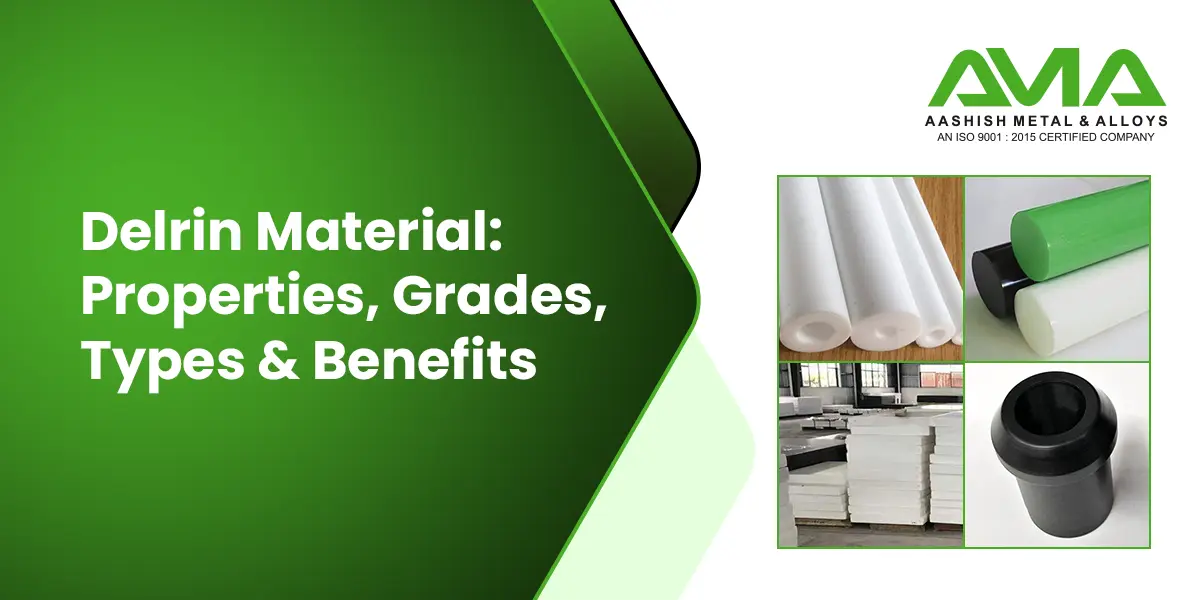Beryllium Copper (BeCu) is a high-performance alloy that has earned a reputation as one of the most versatile materials in modern engineering. By combining the mechanical strength of steel with the electrical and thermal conductivity of copper, it provides a unique balance that few other alloys can achieve. This rare combination allows beryllium copper to serve industries that demand both structural durability and efficient energy transfer.
Unlike pure copper, which is soft and prone to deformation under load, BeCu retains high strength even in demanding environments. At the same time, it preserves excellent conductivity, enabling its use in electrical and electronic systems where consistent current flow is critical. Its non-sparking and non-magnetic characteristics add another layer of value, making it safe for hazardous operations such as oil refineries, mining, defense equipment and medical imaging facilities.
In addition, beryllium copper exhibits strong corrosion resistance, withstanding saltwater, oxidation, and chemical exposure. This reliability ensures long service life in marine engineering, chemical plants, and energy sectors. Because it can be precision-machined into complex components without losing structural integrity, BeCu has become indispensable in applications ranging from micro-connectors and precision springs to aerospace actuators and industrial tooling.
Properties of Beryllium Copper Alloy
Beryllium copper stands out because it delivers a rare mix of strength, conductivity, safety, and workability. These properties make it suitable for industries where traditional metals like steel or pure copper fall short.
- Strength with Conductivity: Beryllium copper provides yield strength levels comparable to hardened steels while maintaining nearly 60% of pure copper’s electrical conductivity. This dual advantage means it can carry current efficiently without sacrificing mechanical durability. Engineers often choose it when they need both robust load-bearing capacity and stable electrical performance.
- Non-Sparking & Non-Magnetic: Unlike steel or brass, BeCu does not create sparks when struck and remains completely non-magnetic. These qualities make it indispensable in hazardous and sensitive environments such as oil rigs, refineries, defense systems, and MRI facilities. It not only prevents ignition risks but also ensures that electronic equipment operates without magnetic interference.
- Corrosion Resistance: The alloy is highly resistant to oxidation, saltwater, and chemical attack, offering excellent performance in corrosive or high-humidity environments. Industries like marine engineering, chemical processing, and oil & gas rely on this property for long-lasting equipment life. By reducing degradation and maintenance needs, BeCu provides consistent reliability under extreme conditions.
- Machinability: Despite its strength, beryllium copper can be stamped, formed, or machined into intricate designs with precision. Even after complex processing, it retains dimensional stability and mechanical integrity. This makes it a preferred choice for manufacturing detailed components such as precision springs, connectors, and miniature tooling parts.
Comparison of Beryllium Copper Alloy Properties with Other Metals
To understand why beryllium copper is unique, it helps to compare its properties with common engineering metals. The table below highlights how it balances strength, conductivity and safety better than pure copper or steel.
| Property | Beryllium Copper Alloy | Pure Copper | Steel |
| Electrical Conductivity | ~60% IACS | 100% IACS | Very low |
| Magnetic Behavior | Non-magnetic | Non-magnetic | Magnetic |
| Yield Strength | Up to 1100 MPa | ~70 MPa | 250–1000 MPa |
| Corrosion Resistance | Excellent | Moderate | Variable |
| Non-Sparking | Yes | No | No |
Heat Treatment & Mechanical Performance
The full strength of beryllium copper is achieved through heat treatment, which tailors its performance for critical applications.
- Solution Annealing: In this process, beryllium copper is heated to a high temperature and then rapidly cooled to soften the alloy. This improves machinability, allowing it to be shaped or formed into complex components before final strengthening.
- Age Hardening (Precipitation Hardening): After annealing, the alloy is reheated at lower temperatures for a controlled period, forming fine beryllide particles. This significantly increases hardness and strength, making BeCu ideal for high-performance applications.
This process allows BeCu to combine mechanical performance with electrical efficiency, bridging the gap between soft copper and hardened steel.
Beryllium Copper Yield Strength
| Material | Yield Strength (MPa) | Density (g/cm³) | Strength-to-Weight Performance |
| Pure Copper | ~70 | 8.96 | Low |
| Carbon Steel | 250–1000 | 7.85 | Medium |
| Beryllium Copper | 800–1100 | 8.25 | High |
Top 6 Beryllium Copper Uses in Modern Industries
Beryllium copper has proven to be an essential alloy across industries that demand a mix of strength, durability, and electrical efficiency. Its unique performance characteristics make it a material of choice where ordinary metals cannot deliver the same reliability.
1. Electrical & Electronics
BeCu is widely used in connectors, relays, switches, and precision springs where consistent conductivity and mechanical stability are vital. Unlike pure copper, it resists fatigue and maintains its current-carrying ability over repeated cycles. This makes it indispensable for telecommunications, semiconductor manufacturing, and modern consumer electronics.
2. Aerospace & Defense
In aerospace and defense, materials must perform under extreme stress, temperature variations, and safety-critical conditions. BeCu is trusted in landing gear parts, aircraft actuators, and non-sparking tools for its strength-to-weight ratio and corrosion resistance. Its non-magnetic property also ensures safe performance in sensitive defense systems and avionics.
3. Oil, Gas & Mining
Exploration and extraction equipment requires alloys that can withstand corrosive and explosive conditions. BeCu is used in drilling tools, refinery valves, pumps, and high-pressure instruments for its resistance to hydrogen sulfide and chlorides. Its non-sparking nature reduces ignition risks, making it reliable in volatile oil rigs and mining sites.
4. Automotive
The automotive industry relies on BeCu for bushings, bearings, sensors, welding electrodes, and contact terminals. Its high wear resistance prolongs component life, while its conductivity enhances ignition systems and EV battery connectors. As electric and hybrid vehicles grow, BeCu supports efficiency, safety, and better energy transfer.
5. Medical
BeCu’s non-magnetic and biocompatible nature makes it ideal for surgical instruments, dental tools, and diagnostic devices. It is widely used in MRI-compatible tools where magnetic interference must be avoided. Along with its resistance to sterilization environments, it ensures patient safety and long-lasting performance in medical technology.
6. Industrial Tooling
In tooling applications, BeCu offers hardness combined with superior thermal conductivity. Injection molding inserts made of BeCu speed up cooling cycles, improving productivity and reducing costs. Its strength and wear resistance also extend the service life of dies, gears, and ejector pins, outperforming conventional tool steels.
Advantages of Beryllium Copper
Beryllium copper remains a preferred alloy because it brings together properties that most metals cannot combine in a single material. These advantages make it a trusted choice for industries that demand safety, performance, and long-term reliability.
- Safety Advantage: BeCu is both non-sparking and non-magnetic, which makes it extremely safe for use in hazardous or sensitive environments. Industries such as oil & gas, defense, and medical technology depend on these properties to avoid ignition risks and magnetic interference.
- Performance Advantage: The alloy offers yield strength comparable to hardened steels while retaining up to 60% of pure copper’s conductivity. This allows engineers to design components that are strong enough to handle heavy loads yet efficient enough to transmit electrical signals and heat effectively.
- Durability Advantage: BeCu resists corrosion, galling, and metal fatigue, which ensures components continue to perform under stress for long periods. Springs, bearings, and bushings made from BeCu can endure millions of operational cycles, reducing downtime and replacement costs in critical systems.
Limitations & Safety Considerations of Beryllium Copper
While beryllium copper delivers unmatched performance in many areas, it also comes with certain drawbacks that engineers and buyers must carefully consider. Understanding these limitations helps ensure the alloy is used effectively and safely in industrial environments.
- High Cost: Beryllium copper is more expensive than common metals like brass or steel due to the rarity of beryllium and the complexity of alloying. Its use is therefore limited to critical applications where performance benefits outweigh cost. Companies often justify the investment through reduced downtime and longer component life.
- Health Hazard During Machining: The primary safety risk occurs when machining, welding, or grinding releases beryllium dust or fumes, which can be harmful if inhaled. To mitigate this, industries adopt strict safety measures such as wet machining, dust extraction systems, and protective equipment. Finished BeCu products, however, remain safe for regular handling.
- Fabrication Complexity: Due to its hardness, BeCu is more difficult to form compared to softer alloys, requiring specialized tooling and skilled operators. Often, components are machined in a softer state and then heat-treated to achieve final strength. This added step increases production complexity but ensures optimal performance.
Why Choose Aashish Metal & Alloys for Beryllium Copper Products?
At Aashish Metal & Alloys, we recognize the critical role beryllium copper plays in precision engineering and industrial applications, which is why we focus on delivering products that meet the highest standards of performance and reliability. Our wide product range includes rods, sheets, plates, and coils, giving clients the flexibility to select the exact form required for their projects. We also offer customized manufacturing based on client drawings and specifications, ensuring that every component fits seamlessly into demanding applications. Backed by ISO 9001:2015 certification, our production processes are aligned with global quality standards, and every batch undergoes rigorous testing for strength, conductivity, and durability. Over the years, we have established ourselves as a trusted global supplier with a strong export network that supports industries across multiple continents. With a proven reputation for timely delivery and dedicated customer service, Aashish Metal & Alloys stands out as a reliable partner for sourcing premium-grade beryllium copper solutions.
Conclusion: Final Thought on Uses of Beryllium Copper
Beryllium copper has firmly established itself as a high-value alloy that bridges the gap between strength, conductivity, and safety qualities rarely found together in a single material. Its ability to deliver steel-like durability while retaining excellent electrical and thermal performance makes it indispensable across industries such as aerospace, oil & gas, electronics, automotive, medical, and precision tooling. While factors like cost and safe handling during fabrication require careful consideration, the long service life, reduced downtime, and unmatched reliability often outweigh these challenges.
For engineers, manufacturers, and industrial buyers seeking a material that can withstand demanding environments without compromising performance, beryllium copper remains one of the most versatile and trusted choices in modern engineering.
Frequently Asked Questions About Beryllium Uses
- Why is beryllium copper so expensive?Beryllium copper is costly because it requires rare raw materials and complex alloying and heat-treatment processes. The premium pricing is justified by its unmatched combination of strength, conductivity, and safety features.
- What is the difference between copper and beryllium copper?Pure copper offers higher conductivity but lacks mechanical strength, making it unsuitable for high-stress environments. Beryllium copper, on the other hand, combines steel-like strength with excellent electrical and thermal properties.
- Is it safe to touch beryllium copper?Yes, finished beryllium copper products are completely safe for everyday handling and industrial use. Health risks only occur during machining, welding, or grinding when dust or fumes may be inhaled.
- Is beryllium copper stronger than steel?In many cases, beryllium copper achieves comparable or higher yield strength than carbon and alloy steels. Unlike steel, it also provides superior fatigue resistance while retaining electrical conductivity.
- Is beryllium copper magnetic?No, beryllium copper is completely non-magnetic, which makes it ideal for sensitive applications. It is widely used in aerospace, defense, and medical instruments such as MRI-compatible tools.




